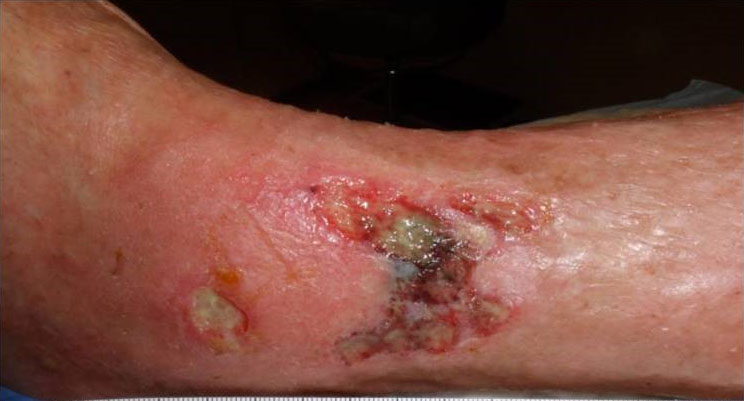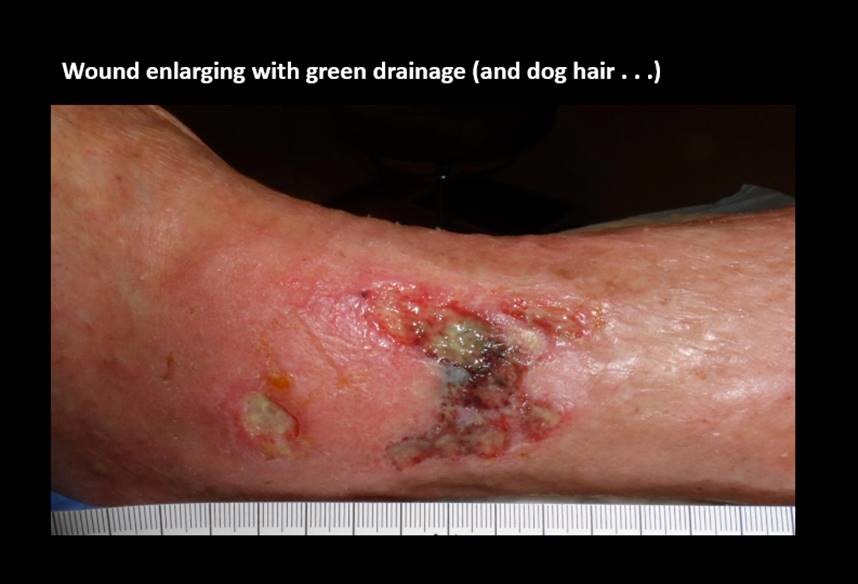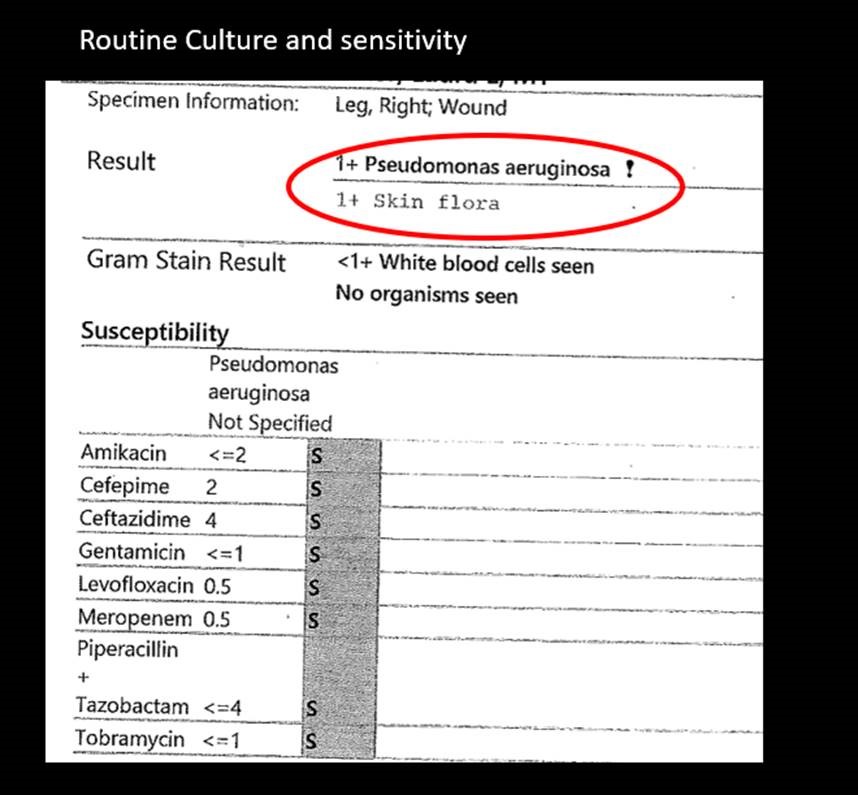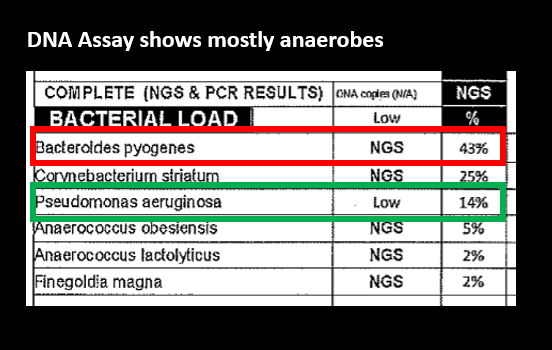I have been using DNA assay of wounds for a decade, but am still trying to figure out how best to employ this technology. Here’s an example of why it is needed at times: This is a frail lady who is devoted to her dogs. Her wound had been making progress at a glacial but steady pace, when it suddenly began to get worse. The drainage was somewhat green (aren’t they all?). I normally don’t do both a routine culture and a DNA assay, but on this day I did. Not surprisingly, her culture showed “1+” Pseudomonas, which is not very impressive given the worsened condition of her wound.
The DNA assay showed that Pseudomonas was indeed present, but only at 14% of the bacterial load, which means it was mostly along for the ride. The real problem was a colony of anaerobes, chiefly Bacteroides pyogenes, a significant clinical pathogen. She also had some anaerococcus species I had trouble pronouncing phonetically. I didn’t get this information from the routine culture, and she was better after taking antibiotics targeting the anaerobes. The wound did not have a anaerobic smell, which often is the hint that anaerobes are around, and for which I might have done an anaerobic culture.
The reason I got a traditional culture is that I was worried she would get sick and then we’d need antibiotic sensitivities (which you can’t get on DNA assay although you can find out if they have the genes for certain resistant bacteria). However, if she had been hospitalized, we would have been treating the wrong bacteria using only the data from the culture. I am pretty sure one of these lab tests will be denied, since I got them both on the same day. I didn’t get the final results of the DNA assay for more than a week, although I was really glad to have it when I got it. I can only get the DNA assay on traditional Medicare patients because the Advantage plans deny it and so do most of the private payers (the company I use for this study negotiated a price for traditional Medicare). The problem is that I don’t know how important the DNA assay will be until I have the results. This is one of the times it was useful (and interesting). It matters when it matters. That doesn’t help me figure out when I need to get it.

Dr. Fife is a world renowned wound care physician dedicated to improving patient outcomes through quality driven care. Please visit my blog at CarolineFifeMD.com and my Youtube channel at https://www.youtube.com/c/carolinefifemd/videos
The opinions, comments, and content expressed or implied in my statements are solely my own and do not necessarily reflect the position or views of Intellicure or any of the boards on which I serve.






